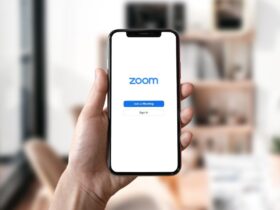With the growing demand for tech skills, learning computer programming is more accessible than ever. The internet is packed with free courses that allow anyone to learn coding, whether you’re a beginner or looking to enhance your existing skills. These free online courses make it easy to start your journey toward a career in software development, web design, or data science without breaking the bank. In this guide, we’ll explore the best places to find free online courses for computer programming and offer tips on how to maximize your learning experience.
Where to Find Free Online Courses for Computer Programming?
You can find free online courses for computer programming on several top platforms like Codecademy, Coursera, edX, and freeCodeCamp. These websites offer beginner to advanced courses in programming languages such as Python, Java, and JavaScript.
Platforms like Khan Academy and MIT OpenCourseWare also provide high-quality, self-paced courses from reputable institutions. These resources make it easy to learn programming without spending money, giving you access to valuable skills that can help launch a tech career.
Where to Find Free Online Courses for Computer Programming
If you’re eager to start coding but don’t want to spend money on tuition or course fees, here are the best platforms offering free online courses for computer programming:
Codecademy
Codecademy is a well-known platform that offers interactive, beginner-friendly courses in programming. You can learn popular languages such as Python, Java, JavaScript, HTML, and CSS. The free version of Codecademy provides a strong foundation in coding by offering interactive exercises and projects that help you practically understand coding concepts. While they offer a paid subscription for additional features, you can access many of their beginner courses for free.
Coursera
Coursera collaborates with top universities and companies to offer thousands of courses, including computer programming. Courses on Coursera cover languages such as Python, C++, and Java, and are designed by experts from institutions like Stanford and the University of Michigan. While Coursera charges for certificates, you can audit most courses for free, meaning you can watch lectures and access materials without paying. It’s a great option for anyone looking to learn from university-level content at no cost.
edX
edX is another fantastic platform that partners with universities like Harvard and MIT to offer free programming courses. You’ll find a wide range of subjects, including web development, data science, and artificial intelligence. edX’s free courses are often self-paced, allowing you to learn at your speed. While paid certifications are available, you can access the full course materials without paying, making edX a valuable resource for self-learners.
Khan Academy
Khan Academy offers free educational content in many subjects, including computer programming. Their programming section focuses on web development, teaching you the basics of HTML, CSS, and JavaScript through interactive tutorials. Khan Academy’s lessons are designed for complete beginners, and their step-by-step guidance makes complex topics easier to grasp. This platform is perfect if you’re just starting and want to learn the basics of coding in a fun and engaging way.
freeCodeCamp
freeCodeCamp is a nonprofit platform that offers a completely free, comprehensive curriculum focused on web development, coding, and data visualization. It provides step-by-step coding challenges, and as you progress, you’ll build real-world projects that can be added to your portfolio. The platform covers various languages like JavaScript, Python, and SQL, and emphasizes hands-on learning by having you complete practical tasks throughout the course. freeCodeCamp’s supportive community and project-based approach make it an excellent resource for learners at any level.
MIT OpenCourseWare
MIT’s OpenCourseWare (OCW) is a collection of free educational materials from real MIT courses. Their computer science section includes lectures, assignments, and exams that cover a wide range of topics, from introductory programming to advanced algorithms. Although OCW lacks interactive features like quizzes or peer feedback, the quality of the content is unmatched, making it an ideal resource for self-motivated learners who want access to high-level educational materials.
Harvard CS50 (via edX)
Harvard’s CS50 course is one of the most popular free online computer science courses available. It covers the fundamentals of computer programming and includes languages like C, Python, and SQL. Offered through edX, this course provides both theory and practical coding skills. It’s an excellent option for those who want a deep dive into computer science from one of the world’s top universities, and you can access all the course content for free.
How to Maximize Your Learning from Free Online Programming Courses
Enrolling in free online programming courses is only the beginning. To gain real value from these resources, you need a clear plan that keeps you focused and motivated throughout your learning journey. Below are practical steps to strengthen your progress and ensure lasting results.
- Set Specific Learning Goals
Start by defining what you want to achieve. Decide whether you want to build websites, create apps, or pursue data science. Clear goals help you choose the right courses and languages. For example, focus on HTML, CSS, and JavaScript for web development, or choose Python if you aim for data science roles. - Choose One Language at a Time
Avoid overwhelming yourself with multiple languages. Commit to one language until you feel confident. Python is ideal for beginners due to its simplicity and flexibility, while JavaScript or HTML/CSS work well if your interest lies in web development. - Practice Coding Regularly
Consistent practice is essential. Set time aside each day or week to complete exercises and projects. Websites like freeCodeCamp and Codecademy offer repeated practice to strengthen your skills. You can also build small personal projects to apply what you’ve learned. - Engage with Coding Communities
Online communities make learning more enjoyable. Platforms like Stack Overflow, Reddit, and GitHub let you ask questions, get feedback, and share progress. These communities keep you motivated and help you solve problems faster. - Apply What You Learn to Real Projects
Put your new skills into action. After finishing a course, create a website, simple program, or small app. Real-world projects deepen your understanding and help you build a portfolio for future opportunities.
Benefits of Learning Computer Programming for Free
Learning computer programming for free offers several benefits, especially for those just starting:
- No Financial Investment
Free courses allow you to learn without worrying about tuition fees or expensive course materials. You can gain the same knowledge as paid courses without the financial burden, making programming accessible to everyone. - Flexibility
Most free online courses are self-paced, meaning you can learn whenever it fits your schedule. Whether you’re balancing a job, school, or other commitments, you can complete lessons at your own pace without feeling rushed. - Access to High-Quality Content
Many free courses are created by top universities and institutions, giving you access to the same high-quality education as paid programs. Platforms like edX and Coursera feature courses from schools like Harvard and MIT, providing you with expert knowledge at no cost. - Hands-On Learning
Platforms like freeCodeCamp emphasize practical, hands-on learning, allowing you to build real projects as you go. This experience helps you develop skills you can immediately apply to coding challenges and job opportunities.
Challenges of Learning Computer Programming for Free
While free online programming courses offer great value, they come with a few challenges:
Lack of Direct Support
In free courses, direct interaction with instructors is usually limited or unavailable. This can make it difficult to get personalized help or feedback on your work. Relying on community support or forums like Stack Overflow can help you navigate challenges.
Self-Discipline is Key
Because most free courses are self-paced, staying motivated can be tough. You’ll need to be disciplined and create a study schedule to stay on track with your learning goals.
No Certification (in Most Cases)
Most free courses do not offer official certifications unless you pay for them. While you can still learn valuable skills, if you’re looking to showcase your programming knowledge to employers, you may need to complete additional certifications.
Wrapping Up
If you’re wondering where to find free online courses for computer programming, the options are plentiful. Platforms like Codecademy, Coursera, edX, and freeCodeCamp offer a wide variety of high-quality courses that can help you learn everything from the basics of coding to more advanced programming topics. With dedication, regular practice, and a clear learning plan, these free resources can provide you with the skills needed to start a tech career. While there are challenges, such as limited instructor support and self-motivation, free courses offer a flexible and cost-effective way to learn coding.
FAQs
Do free programming courses provide certificates?
Most free courses do not offer certificates unless you pay for them. However, the knowledge and skills you gain are still valuable.
What’s the best programming language for beginners?
Python is often recommended for beginners due to its simplicity and versatility. It’s widely used in web development, data science, and automation.
Are free programming courses as good as paid ones?
Yes, many free courses are taught by experts from top universities and companies. The quality is often comparable to paid courses, especially when it comes to beginner and intermediate content.
Can I get a job after learning programming through free courses?
Yes, if you build a strong portfolio and demonstrate your skills through projects, you can increase your chances of getting a job, even if you learned through free courses.
How long does it take to learn programming?
The time it takes to learn programming depends on your dedication and the complexity of the language. For beginners, it can take several months to become comfortable with basic coding.












































Leave a Reply